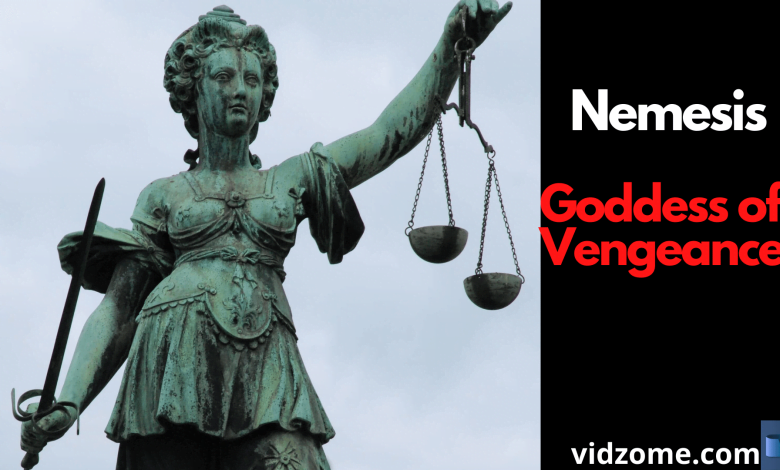
Origin of Nemesis Goddess
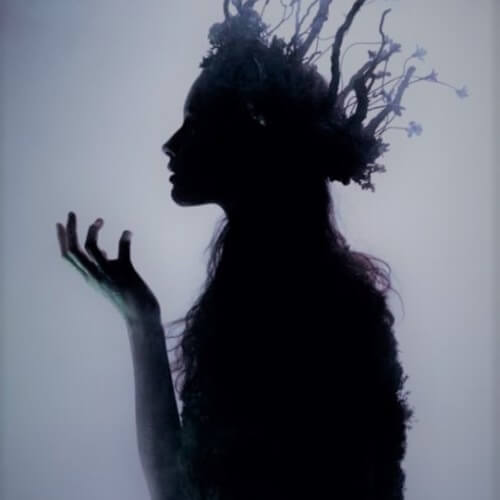
Nemesis is the Goddess of Revenge, Retribution and Balance. She is most popular for her character of Retribution also named as Invidia.
Mother of Nemesis Goddess is Nyx (Goddess of Darkness) but the father is not confirmed some say it is Erebus and some say it is Zeus, Poseidon or Hades.
Some sources says that she was created by Parthenogenesis (Childbirth with one parent only, mostly Mother) and do not have any father.
Her Mother Nemesis is considered the oldest Goddess as well as the Strongest that even Zeus feared her when he came to kill her son hiding in her cave.
Greek Gods vs Norse Gods Fight (Important Comparison)
Symbols of Nemesis Goddess
The Symbols of Nemesis Goddess include the Sword, lash, dagger, measuring rod, scales, bridle. Which represents her strengths as well as weaknesses.
Controller of Shadows
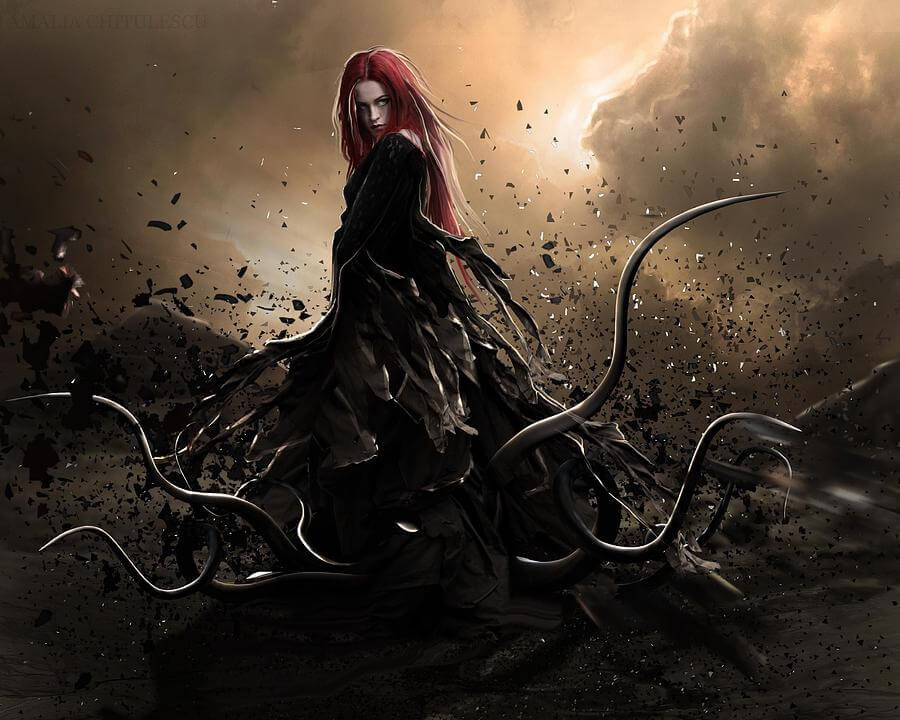
She had a wonderful ability to control the shadows which she inherited from her mother and could perform the acts of deceiving.
She can create shadows and dupe others with these shadows. Her mother is the Goddess of Dark and these abilities were given to Nemesis by her.
Controller of Desnity
She is the controller of destiny and able to control the Luck of others and in this way can bring rise and falls in someone’s life.
We can see this in the story of Narcissus who was a brilliant warrior but was lured by her and ruined his fate.
She can command the wheel of Fortune to rotate as she desire.
A Cursing Figure
She is also popular for her curses that could destroy someone’s destiny if he does not give back to Nemesis Goddess.
This is also the reason for her worshipping by her believers. In this way, Nemesis is considered as one of very powerful deity although she is not one of Olympian.
Why Cronus and Rhea Myth is so popular in Greek Mythology?
Nemesis Goddess Stories
Echo and Narcissus Myth
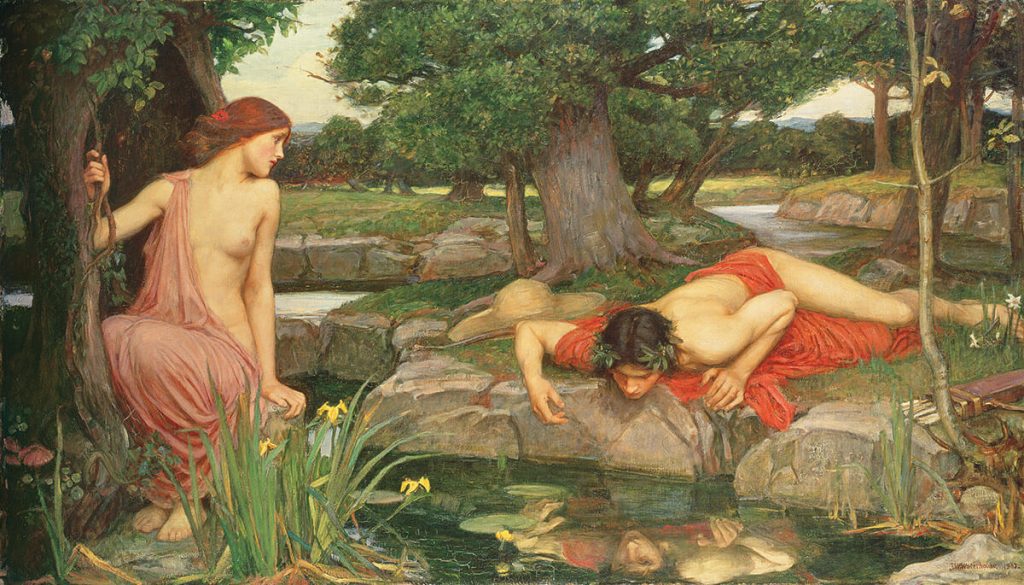
Legend states that there was a strong and handsome young warrior Narcissus who had been admired by many young ladies.
One day, Narcissus rejected Echo (a Nymph) and this enraged Nemesis, the Goddess of Fortune.
As a result, Nemesis took the revenge when Narcissus was thirsty and lead him to a pool where he was enraptured by his own reflection.
The Legend says that Narcissus is still captured in his own reflection which was the revenge of Nemesis Goddess.
Myth of Nemesis and Zeus
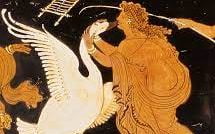
When Nemesis was under the Surveillance of Zeus on Mount Olympus she was not happy and wanted to escape from there.
One day, she decided to escape from Zeus and took the formation of a goose and flew from there.
Zeus knew this and transformed into a swan. He followed Nemesis and caught her.
Zeus impregnated Nemesis and as a result, Nemesis Goddess laid two eggs and each of those eggs contained twins.
Here are 9 Thrilling Zeus Tattoo Meanings (Greek Mythology)
Story of Nemesis and her Son Ethan
Nemesis Goddess also had a son demigod but never claimed him as her son who fought in the second Olympian war but betrayed the Gods.
One day, Nemesis came to her son Ethan and offered her something in return of his one eye.
She offered him the balance of all Gods and Demigods which was the greatest desire of Ethan because demigods were not honorable at all.
Nemesis as a Goddess of Fortune took one eye of Ethan and he spent rest of his life with just one eye.
Roman counterpart
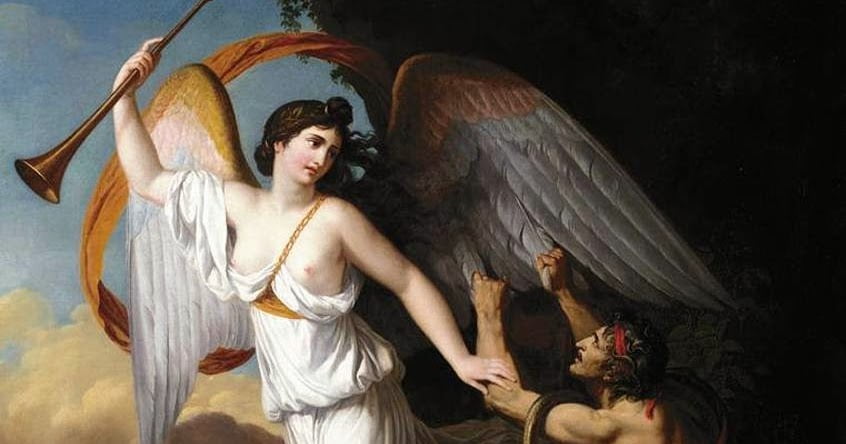
The Nemesis is also found in other mythologies and religions like in Roman and Christianity.
In Roman Mythology, she is known as Invidia, the Goddess of Vengeance and Envy.
However, in the Christianity, Nemesis Goddess is turned out to be a sin among the seven deadly sins.
Know What Happened to Old Norse Religion Today? (Asatru)
Conclusion
Nemesis Goddess is an important and powerful figure in the Greek Mythology and controls the Destiny of People.
She has been a part of some popular Myths like the one of Narcissus and is considered a symbol of Vengeance.
Her Roman Counterpart is Invidia which also represents envy and revenge.
Nemesis is considered a somehow negative figure in the world of Gods and Goddesses, who brings falls and play with the Luck.
She only gives rise to a person in return of something and is so serious in this that she did not even forgive his own son and end-up taking his eye.
What are the nine realms in Norse mythology?(Yggdrasil Tree)



